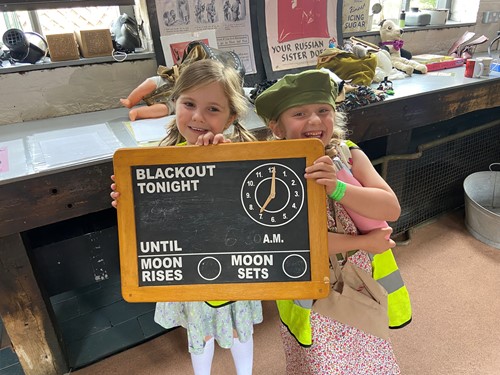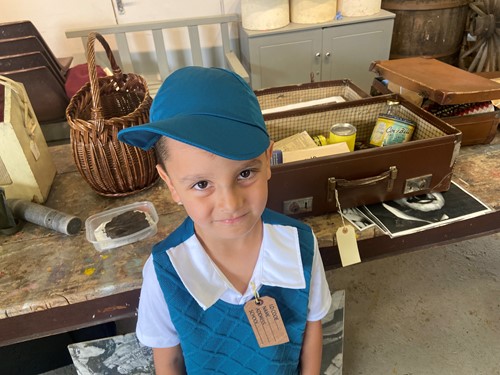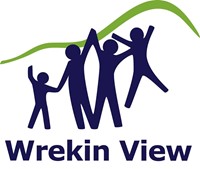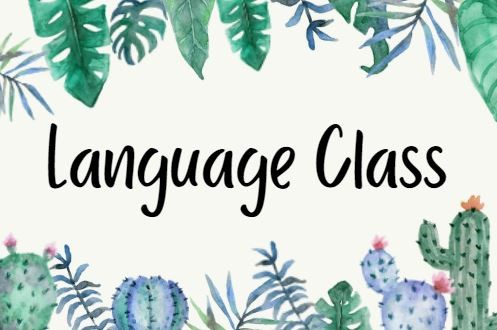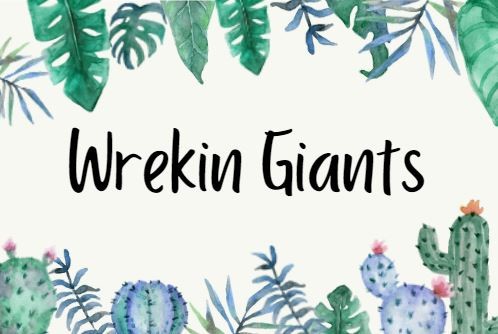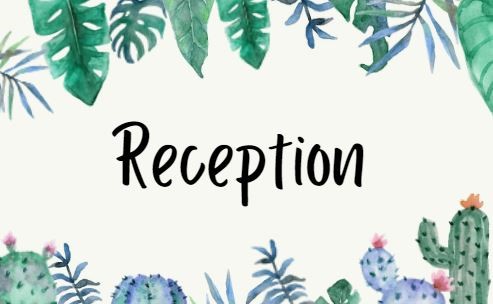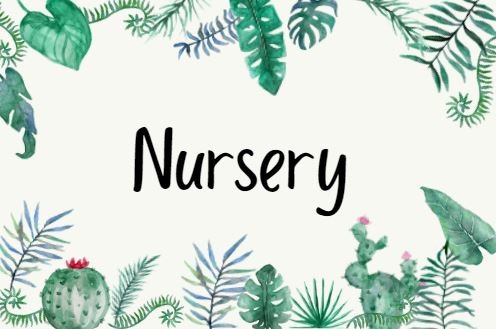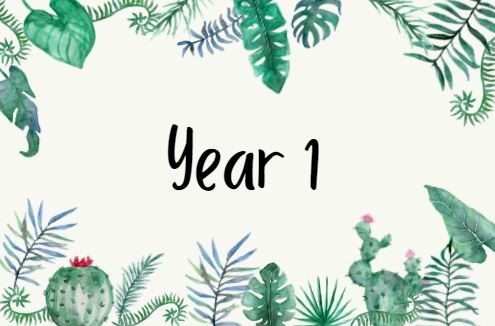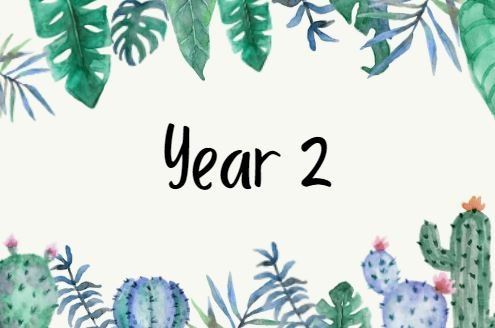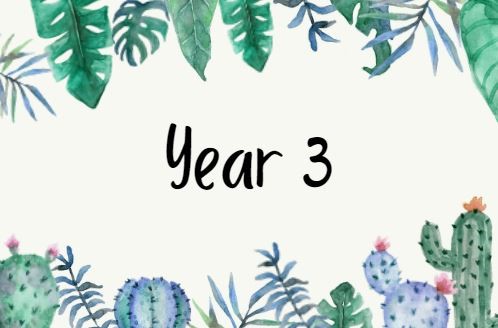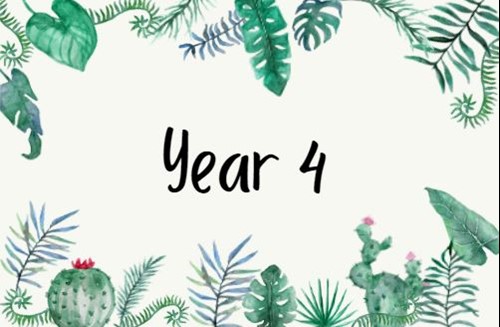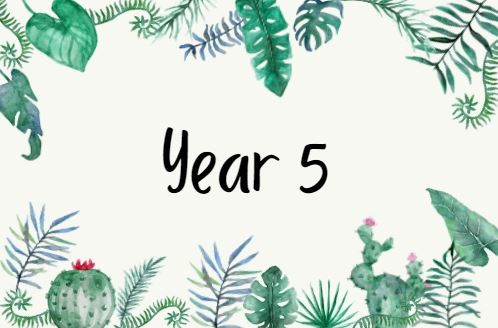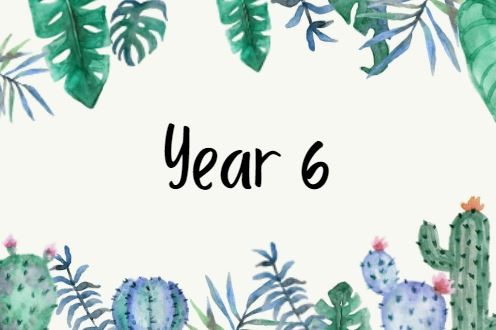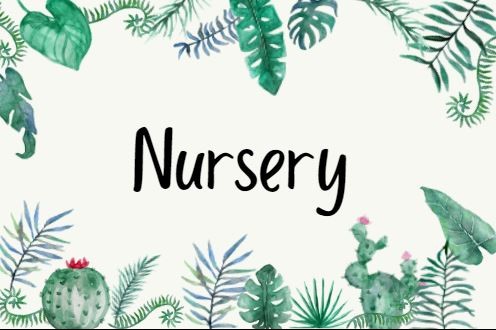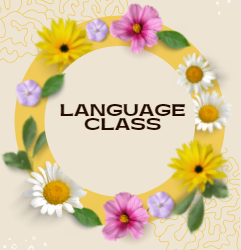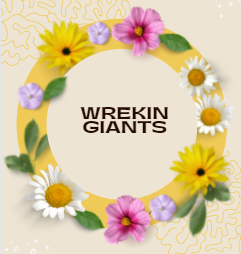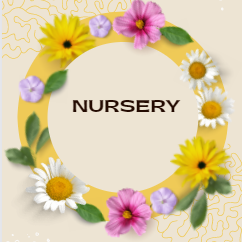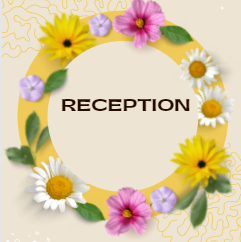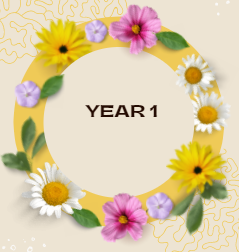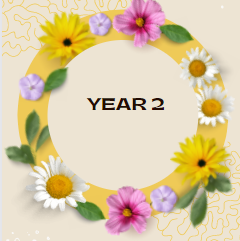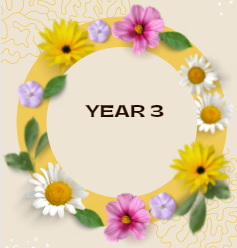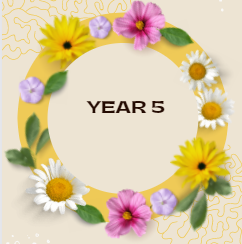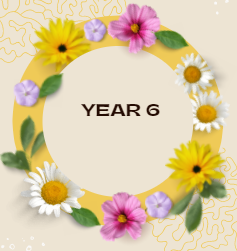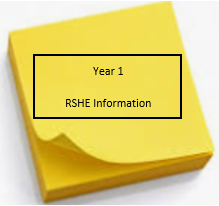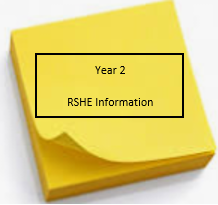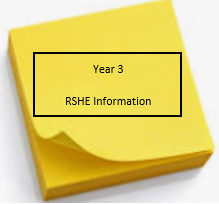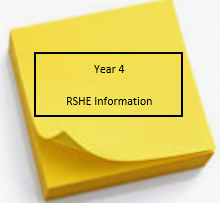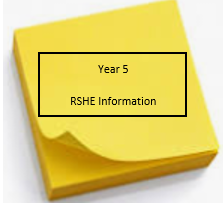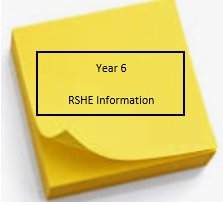Our vision, “happy, successful, curious, communicators” lies at the very heart of our curriculum at Wrekin View Primary School. As a school, we have an unrelenting determination to deliver the best possible education to the children in our care so that they go on to be happy, successful individuals who are fully equipped with the knowledge, skills and personal attributes to be positive members of their community. Our curriculum is written to ensure that all children succeed through engaging in a wealth of exciting, purposeful learning experiences that enable them to know more and remember more, in addition to developing a true love of lifelong learning and igniting their curiosity as they investigate and question the ever-changing world around them. We have a culture that is predicated on reflective practice in which we regularly review our curriculum to enhance the learning experiences for all. We strive to construct a curriculum that is ambitious and aspirational; designed to give all learners and groups of learners, including the most disadvantaged and those with SEND, the knowledge and cultural capital they need to succeed in their future lives. We are proud of the links that we have with our local community. In addition to following the National Curriculum, our curriculum is designed to support the needs of the community that we serve. This is further enhanced by the broad extra-curricular offer we provide, including successfully participating in local sporting competitions. All of these experiences enable our children to know more and remember more.
All children will transition through Wrekin View Primary School experiencing a coherently planned curriculum which ensures opportunities for knowledge and skills to be revisited, embedded, and subsequently built upon so that our children know more and remember more. We recognise that improving educational outcomes is the biggest way we can positively impact the future for our children. Our broad and balanced curriculum is sequenced towards clearly defined end points. Children are guided to reach these through our well-constructed curriculum and effective delivery underpinned by research driven practice. Children with SEND (Special Educational Needs and Disabilities) and vulnerable children can access all learning through well thought out lessons and resources. Teachers adapt support material and plan for children to achieve the year group learning objective, whatever their starting point. The expectation is that all children can achieve through knowing more, remembering more and being able to do more.
Reading is very much at the heart of our curriculum. Our children are encouraged, taught and enthused through a range of exciting and inspiring texts which represent our diverse community and promote success. We recognise that for children to succeed in reading, they must have the knowledge to help them comprehend what it is that they read. Our ambitious curriculum allows our children to know more so that they can succeed across all areas of their learning. With an increased focus on communication, children are taught to listen, challenge and engage with each other to solve problems and work collaboratively.
Our curriculum truly empowers our children to positively contribute to their community and the wider world.
Reading Intent Statement
At Wrekin View, we firmly believe that reading is an essential skill that is vital for the life opportunities of our children. Our aim is to give reading the prominence it deserves through developing the habit of reading widely and often, for both pleasure and information. At the heart of our curriculum is our drive to foster a love of reading. We are passionately committed to ensuring that our children become avid lifelong readers. We aim to equip them with the skills needed to access a whole world of books, and therefore a lifetime of enjoyment as they continue to read for pleasure well beyond their time at Wrekin View.
In preparation for the next stages in their learning journey, we strive to ensure that all children can read confidently, fluently, accurately and with good understanding. Through following a clear pathway of progression as they advance through our curriculum, all children will have the tools needed to successfully read for a range of purposes in all aspects of their future life experiences.
As a school, we emphasise the importance of mastering the early reading skills as the vital foundations for developing strong word recognition. We prioritise high-quality book talk with all children. Through exposing the children to a wide range of genres and authors, we expect them to effectively communicate preferences and opinions about the range of texts they read. Equally, we aim to encourage children to explore the vocabulary used and ignite their curiosity as they ask questions to deepen their understanding of what they have read. We aspire to nurture curiosity through encouraging our children to enjoy learning about the world in which we live through the knowledge they gain from reading relevant texts.

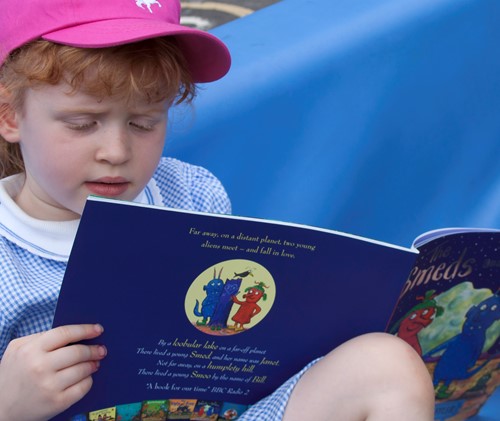
Reading Implementation Statement
At Wrekin View, we provide purposeful learning opportunities to facilitate progress in reading across our school. The enjoyment of books and a love of reading are fostered from the earliest stages in each child’s time at Wrekin View. In addition to following the National Curriculum, our key aims lay the foundations for our well-sequenced Reading curriculum.
The National Curriculum for Reading aims to ensure that all pupils:
- Read easily, fluently and with good understanding.
- Develop the habit of reading widely and often, for both pleasure and information.
- Appreciate our rich and varied literary heritage.
- Acquire a wide vocabulary, and an understanding of grammar and knowledge of linguistic conventions for reading.
Through the effective implementation of the phonics programme, Read, Write, Inc., we begin the teaching of phonics in Nursery. This gives the children the knowledge and confidence to independently attempt reading and writing from the earliest possible stages. We continue to use the Read, Write, Inc. programme to deliver daily phonics to children in Reception, Year 1 and Year 2 where necessary. The children are taught in small sized ability groups where they participate in speaking, listening, reading, and spelling activities that match their current needs. Strong links are made between reading and writing. Fidelity to one scheme ensures that the teaching of reading is consistent and effective. We have a designated Reading Lead who oversees the quality of teaching and learning, tracks progress, and ensures that targeted interventions are delivered to rapidly close any gaps. All staff are trained to deliver Read, Write, Inc., and they receive regular training updates to maintain high quality delivery. Additionally, the Reading Lead supports and mentors staff delivering the lessons daily through regular drop ins and team teaching.
Through teaching children to effectively segment and blend at an early stage, we then build on this by placing an emphasis on ensuring that children can decode texts effortlessly so that all their resources can then be used to comprehend what they are reading. We recognise the importance of children mastering this early reading stage, and we ensure that children are regularly exposed to phonics throughout the school day.
Listen, Read, Respond (LRR) sessions happen daily in Key Stage 1 and Key Stage 2 classes. Our whole class reading sessions aim to support children’s word reading, fluency and decoding, as well as deepen their knowledge of the world around them. During these sessions, children are exposed to a wide range of age-appropriate genres, themes, and authors. These high-quality books have been purposefully selected to immerse our children in a wealth of vocabulary, and where appropriate, they are linked to the learning from the previous half term. Through equipping our children with the background knowledge necessary to access and make sense of the vocabulary they are reading, we provide them with opportunities to take meaning from what they are reading. As the text is shared, teachers ask high-quality questions to support the children with developing their understanding as they are guided to read for meaning. High-quality book talk is an important aspect of all LRR sessions. Lesson drop-ins take place to ensure that our high expectations are being upheld, and subsequently, that the children are achieving their maximum potential.
Each week, all children have the opportunity to read with an adult in their class. This 1:1 reading time is valued by the children who enjoy sharing texts with the adults in class. As a school, we identify children who need support and provide intervention in the most effective and efficient way possible. Our targeted bottom 20% readers are heard read more frequently to ensure that gaps are closed, and all children achieve their maximum potential.
Demonstration Reading sessions take place in each class. During Demonstration Reading, the teacher reads a high-quality age-appropriate book. The teacher uses a ‘think-aloud’ approach to model how an effective reader uses strategies to make sense of a text, for example, by discussing the author’s intent, asking questions as they read, confirming and adjusting predictions in light of new evidence, making links to their own experiences to draw inferences, and so on. This high-quality story time session allows children to share the enjoyment of listening to a book being read to them whilst further developing their thoughts about a broad range of books.
As a school, we have invested in a set of Read, Write, Inc. Book Bag books that children in Early Years and Key Stage 1 take home and read. These books are consistent with each child’s developing phonic knowledge and are taken home daily. Through reading a text that is closely matched to their phonic ability, our children regularly experience success in reading. We recognise the importance of reading and re-reading as an imperative factor to achieving fluency and automaticity in our children as readers. Additionally, the children are encouraged to read widely and for pleasure by taking home a text of their choice to share with a family member. Once children have progressed through the Read, Write, Inc. programme, they become a ‘free reader’ and will take home an age-appropriate text of their choice. We regularly review the books children take home to promote an ambitious culture of improvement and progress. We encourage parents and carers to read with their child every night and ask questions to strengthen their child’s understanding of the text. All children have a reading diary and parents/carers are asked to make a comment to help support their child’s reading.
We have many incentives to encourage children to find their love for reading. Each week, we celebrate 'Reader of the Week' in our celebration assembly. The winner from each class receives a personalised Wrekin View bookmark. Our Reading curriculum is enhanced through World Book Day, author visits and a range of trips to enrich and complement children’s learning. Through our subscription to the local library, we further promote a reading culture in school. High-quality texts are borrowed and made readily available for children to access during their independent learning time. This is something that is positively encouraged by all staff.
We run parent information sessions on Early Reading for Reception parents, Phonics for Year 1 parents, and SATS for Year 2 and Year 6 parents so that they fully understand the age-related expectations and how best to support their child. Additionally, we invite Reception parents to our ‘Starbooks’ story time session at the end of each half term. This is an opportunity for parents/ carers to come and share a story with their child in school. These sessions are always well attended by parents and carers who often comment on how helpful the sessions have been.
Reading Impact Statement
- The children at Wrekin View have a strong desire to read and are able to do so confidently and competently.
- All children, including the weakest readers, make sufficient progress towards meeting or exceeding age-related expectations
- Children are well-equipped with appropriate strategies that they can use to help them read unfamiliar texts.
Writing Intent Statement
At Wrekin View we believe that a quality writing curriculum equips children to develop a love of the written word, challenges their understanding of grammar and spelling and is underpinned by secure communication skills. Our priority is to help children succeed in grasping the English spelling system, understanding and implementing a range of grammar skills and be able to communicate through writing for a range of audiences ready for their next stage in learning.
We want our children to develop a curiosity of the range of communication through writing and to take pride in their presentation. Our writing curriculum will inspire children to be confident in the art of speaking and listening and to use discussion to communicate as well as to further their learning.
We believe that children need to develop a secure knowledgebase in writing, which follows a clearly structured curriculum where children can use practice and retrieval techniques to secure learning. A secure basis in writing is crucial to a high-quality education and will give our children the tools they need to participate fully as a member of society.
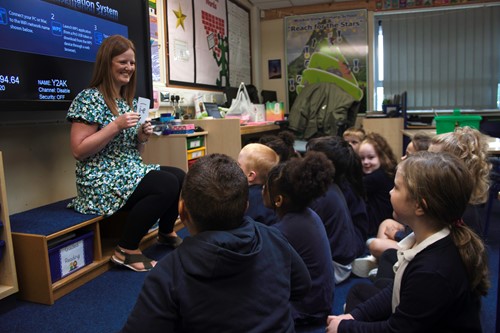
Writing Implementation Statement
In addition to following the National Curriculum, our key aims lay the foundations for our well-sequenced, progressive Writing curriculum. At Wrekin View, we provide purposeful learning opportunities to facilitate progress in writing across our school. The purpose of writing is fostered from the earliest stages in each child’s time at Wrekin View.
The National Curriculum for Writing aims to ensure that all pupils:
- Effective transcription through knowing spelling (phonics) and learning handwriting.
- Effective composition by forming, articulating and communicating ideas and then organising them coherently for a reader.
- Enhance their vocabulary.
- Control speaking and writing consciously to Standard English.
- Have a structure for writing through punctuation and grammatical features in English.
Through the effective implementation of the single systematic synthetic phonics programme, Read, Write, Inc., we begin the teaching of phonics in Nursery. This gives the children the knowledge and confidence to independently attempt reading and writing from the earliest possible stages. There are many opportunities for our children in Nursery to build their gross and fine motor skills well before moving on to holding an instrument with which to write. Moving forward into Reception and Key Stage 1, we continue to teach phonics daily using the Read, Write, Inc. programme. The children are taught in small sized ability groups where they participate in speaking, listening, reading, and spelling activities that match their current needs. Strong links are made between reading and writing. Fidelity to one scheme ensures that the teaching of reading is consistent and effective. We have a designated Writing Lead who oversees the quality of teaching writing, tracks progress, and ensures that targeted interventions are delivered to rapidly close any gaps. All staff are trained to deliver Read, Write, Inc., and The Write Stuff, they receive regular training updates to maintain high quality delivery. Additionally, the Writing Lead supports and mentors staff delivering the lessons daily through regular drop-ins and team teaching.
Through teaching children to effectively link their reading with spelling at an early age, we then build stamina in writing through ‘Hold a sentence’ strategy. We recognise the importance of children mastering this early writing stage, and we ensure that children are regularly exposed to opportunities to write throughout the school day.
Writing lessons occur daily in Key Stage 1 and Key Stage 2 classes. From Spring term Y2, our whole class writing is structured to mirror aspects of Read, Write Inc. such as a speed sound session on a particular spelling pattern and ‘tick and fix’. Following this, the children then use a sentence stack model to build up their writing. The class teacher will model a piece of writing, articulating their thought process and asking for suggestions off the children ways to innovate the writing. This modelled writing supports children’s understanding of grammar & punctuation as well as how to structure their writing. The lessons follow a carefully sequenced curriculum that has been designed to ensure that writing skills are revisited, embedded, and built upon. During these sessions, children are exposed to a wide range of age-appropriate genres, themes, and authors. These high-quality books have been purposefully selected to immerse our children in a wealth of vocabulary, and where appropriate, they are linked to the subject units and LRR learning from the previous half term. Through equipping our children with the background knowledge necessary to access and make sense of the vocabulary they are reading and writing, we provide them with opportunities to then develop the fundamental skills and subtle nuances of writing. Teachers assess and level each independent piece of writing to identify strengths and to narrow gaps in learning. Lesson drop-ins take place to ensure that our high expectations are being upheld, and subsequently, that the children are achieving their maximum potential.
At Wrekin View, we identify children who need support and provide intervention in the most effective and efficient way possible. We deliver intervention writing groups to ensure that all children are making progress. Our targeted bottom 20% writers are supported through Read, Write Inc. in Key Stage 2. Targets are set based on previous KS data to ensure progress is linear and that staff are aware of the expectations for each child. Interventions are put in place for the top 20% to reach GDS.
We have many incentives to encourage children to continue to make progress in their writing. Children’s targets are shared with them at the start of the academic year and they are part of the levelling process after each unit. Children who write consistently in our cursive script are awarded a pen in front of the school during our weekly Star of the Week assembly. Dojo points are awarded for children achieving the success criteria in lessons. Each day, the lesson will have a piece of WOW work shared with the class from the previous lesson.
We run parent information sessions SATS for Year 2 and Year 6 parents so that they fully understand the age-related expectations and how best to support their child.
Writing Impact Statement
When pupils leave Wrekin View, the impact of writing is clear to see; progress, sustained learning and transferrable skills. They will have a positive attitude due to their writing journey being well established and they will have been given opportunities to write for a range of genres. The teaching is thorough and pupils leave us with improved outcomes. Pupils show a deeper level of thinking when they can independently apply new writing skills to a range of text types.
Each independent piece of writing is levelled against our assessment documents for each year group. At the end of each year, we expect pupils to achieve Age Related Expectations (ARE) for their year group. Some pupils will have progressed further and achieved Greater Depth (GD) standard. Pupils with SEND need and those with gaps in their understanding receive appropriate support and intervention.
Above all, our children leave us with a growing confidence to communicate effectively when meeting new writing challenges.
Phonics
At Wrekin View Primary School, we passionately believe in giving every child the opportunity to become a successful reader. We strive to ensure that all children can read confidently, fluently, accurately and with good understanding from the earliest possible age, regardless of their background, need or ability. We prioritise mastering the early reading skills as we recognise that these are the vital foundations for developing strong word recognition, reading fluency and deepened understanding. We are committed to giving our children the strategies needed to access a whole world of books, and therefore a lifetime of enjoyment as we nurture them into becoming avid lifelong readers.
We ensure that we are providing all children with a high-quality phonics education so that they are equipped with the strong foundations which can be built upon as they grow into confident, successful readers and writers. This process begins as soon as the children enter our Nursery setting, where they are baselined as part of our everyday practice. This baseline is used to decide upon a starting point for each child’s learning journey with us. Typically, new starters begin by following the ‘Listen with Lucy’ programme that is delivered by a trained member of staff. This encourages children to develop the basic skills of learning to listen for short periods of time, waiting your turn, sharing resources and beginning to maintain attention.
Once children have completed this programme, and show they are ready to progress, they move onto our bespoke phonics program. We teach seven aspects: environmental, instrumental, body percussion, rhythm and rhyme, alliteration, voice sounds, and oral blending and segmenting are taught once per week, and then revisited in line with the Rosenshine Principles that we follow as a whole school. Within each phonics session, children sing the ‘silly soup’ song whereby they listen for and apply their understanding of initial sounds. This is one of the earliest building blocks in their Early Reading learning journey. We use games, stories and phonics songs from Super Sounds to supplement the teaching of our phonics sessions. This is an essential resource that we use for developing prereading skills, such as phonological and phonemic awareness.
For some of our children with limited language experiences, we use additional programmes to develop the skills they need. This is a flexible approach, and we adapt our curriculum in response to individual needs. Listen with Lola is a programme used to build on, reinforce and consolidate the prior learning that has been developed through following the Listen with Lucy programme. Nursery Narrative is a programme that we use with children who need further support to develop their language and vocabulary, and Attention Bucket is used to develop basic attention if needed. When assessed as ready, we begin to introduce Read, Write Inc Set 1 sounds in preparation for Reception.
We teach daily phonics lessons to all Reception, Year 1 and some Year 2 children through using Ruth Miskin’s synthetic systematic phonics programme, Read, Write, Inc. We systematically teach the children to hear sounds in words (phonemes) and then represent them using letters (graphemes). Phonics teaching continues into Key Stage 2 for those children who are identified as needing continued support through our formative and summative assessments. Fidelity to this scheme ensures that the teaching of Early Reading is consistent, progressive and effective. We ensure, through high quality training, our staff are equipped with the relevant knowledge and skills to provide consistent, effective phonics teaching that ensures all children make good progress.
During their first half term of Reception, children learn to read the first 30 Set 1 sounds. Small groups are formed for any children who enter Reception with prior phonics knowledge to ensure that we are maximising progress and sufficiently challenging all children. At the end of the first half term, we assess the children and group them based on ability so that they receive targeted support in small groups. We identify any children at risk of falling behind and provide one to one tutoring interventions to help them catch up straight away. This is in line with our phonics policy, ‘keep up’, not ‘catch up’. Once the children can recall the Set 1 sounds, they read texts that have words made up of the sounds they know. When revisiting previously taught ‘green’ words, we teach children to ‘Fred in their head’ so that they are ‘Super Speedy Readers’. This means that they can embed and apply their phonic knowledge and start to build their reading fluency. When secure, the children learn Set 2 and Set 3 sounds, and then read texts with increasingly more complex sounds and graphemes. Our children are exposed to phonics in the environment at every opportunity. Staff effectively reinforce strong, accurate decoding skills in all modelled reading and writing across the curriculum, and we actively encourage children to independently apply their phonetic knowledge throughout the school day; it is our aim for children to know more and remember more.
We have a robust and well-structured system in place to ensure all children have access to Read, Write, Inc. Book Bag Books which are matched to their phonic knowledge meaning all words can be fully decoded. This enables our children to experience regular success in their reading. We recognise the importance of reading and re-reading as an imperative factor to achieving fluency for our children.
We truly believe that a successful partnership between home and school is integral to securing and maintaining confident, fluent readers. We aim to provide parents/ carers with a wealth of knowledge, guidance, and useful resources to further develop their confidence with supporting their child at home. We run various workshops across the year for parents/ carers to attend in which they have access to presentations that guide them on how best to support their child at home.
Website for more info: https://home.oxfordowl.co.uk/reading/reading-schemes-oxford-levels/read-write-inc-phonics-guide/
Click here to see how we deliver Read Write Inc at Wrekin View
Maths Intent Statement
The basic skills of mathematics are vital for the life opportunities of our children. Our aim is for all children to think mathematically, enabling them to reason, solve problems and develop a deep body of knowledge that can be applied in a range of concepts. At Wrekin View Primary School, our curriculum has been developed to ensure every child can achieve excellence in mathematics and has been equipped with life-long skills for learning, primarily for the next stage of education. Children can relate to mathematical concepts, through using a variety of manipulatives, so it becomes engrained in their long-term memory and enables them to become fluent, efficient and curious mathematicians.
Following the White Rose Maths schemes of learning, we provide pupils with a deep understanding of the subject through a concrete, pictorial and abstract approach. Key concepts are regularly revisited through ‘flashbacks,’ to promote prior knowledge and ‘diagnostic questions,’ to ensure progress within the lesson. This ensures pupils fully understand what they are learning and that the key areas of fluency, reasoning and problem solving are highly connected and interdependent.
Maths Implementation Statement
At Wrekin View Primary School, we are committed to providing our children with a curriculum that has a clear intention and impacts positively upon their needs.
The national curriculum for mathematics aims to ensure that all pupils:
- become fluent in the fundamentals of mathematics, including through varied and frequent practice with increasingly complex problems over time, so that pupils develop conceptual understanding and the ability to recall and apply knowledge rapidly and accurately.
- reason mathematically by following a line of enquiry, conjecturing relationships and generalisations, and developing an argument, justification or proof using mathematical language
- can solve problems by applying their mathematics to a variety of routine and non-routine problems with increasing sophistication, including breaking down problems into a series of simpler steps and persevering in seeking solutions.
Mathematics is an interconnected subject in which pupils need to be able to move fluently between representations of mathematical ideas. The programmes of study are, by necessity, organised into apparently distinct domains, but pupils should make rich connections across mathematical ideas to develop fluency, mathematical reasoning and competence in solving increasingly sophisticated problems.
At Wrekin View we follow the White Rose Maths Scheme for fluency, reasoning and problems solving and pupils also apply their mathematical knowledge to science and other subjects.
White Rose Maths
Our Wrekin Giants and Nursey children follow the Birth to 5 matters Curriculum and every class from Reception to Year 6 follows the White Rose scheme of learning which is based on the National Curriculum. Long Term and Medium Term plans have been carefully written to ensure that the children are engaged in a spiralised curriculum that offers the opportunity to recap and revisit maths topics throughout the academic year with the aim that the children know more and remember more.
Start of the Day and Pre-Teaching
When the children first enter the school prior to registration, we have a number of start of the day activities which are appropriate to the learning taking place in each year group. In EYFS the children are encouraged to practice recognising, forming and counting up to numbers to 10. ‘Master the Curriculum’ activities are used in Years 1-6 to allow children the opportunity to recall key number facts and develop mathematical skills. There is also a big focus on timetables and a variety of activities are available for children to practise their knowledge and recall of all the timetables and related division facts.
Daily maths lessons
We teach maths daily following objectives carefully set out in the maths medium term plans. Each lesson starts which a ‘flashback’ which recaps learning from the previous day, week and month to help children remember more of the key mathematical concepts that will allow them to be successful mathematicians. We use the Concrete Pictorial Abstract (CPA) approach to teaching our lessons which provides appropriately challenging work for all individuals. To support our learning we have a range of concrete resources in classrooms such as Numicon, Base 10, multilink and place value counters, which the children can access independently to support their learning. When the children have grasped a concept using concrete resources, images and diagrams are used (pictorial) prior to moving to abstract questions. Abstract maths relies on the children understanding a concept thoroughly and being able to use their knowledge and understanding to answer and solve maths without equipment or images. We use ‘diagnostic questions’ at the end of a maths lesson as an AFL tool to check the children’s understanding and deepen their understanding.
Online Maths Tools
In order to advance individual children’s maths skills in school and at home we utilise a range of online maths tool. We use Times Table Rock Stars for multiplication practice and regularly enter online competitions, both locally and nationally to raise engagement. There is an increase focus on multiplication recall in preparation of the Multiplication Times Tables Check for Year 4 pupils. As part of our Times Table Rock Stars subscriptions, children can also access Numbots which helps younger children with their recall and understanding of number bonds and addition and subtraction facts.
Cross Curricular
At Wrekin View we value the role maths plays in the everyday life of our children and we therefore aim to teach it across the various subjects ensuring that the skills taught in our maths lessons are transferable to other areas of the curriculum.
Continuing Professional Development (CPD)
We continuously strive to better ourselves and frequently share ideas and things that have been particularly effective. We take part in training opportunities in school utilising training provided by local maths specialists, National College and through the NCTEM maths hub work groups.
Maths Impact Statement
When pupils leave Wrekin View, we believe they will have a positive attitude to mathematics, as both an interesting and valuable skill set to everyday. Our pupils will have the confidence to work collaboratively and have a deep understanding of maths around them.
Through discussion and feedback from pupils, they speak enthusiastically about their maths’ lessons and speak about they are happy, curious and successful mathematicians.
Pupils show a deeper level of thinking when they can show mathematical concepts and skills multiple ways, using the correct mathematical language independently and apply this to new problems.
At the end of each year, we expect pupils to achieve Age Related Expectations (ARE) for their year group. Some pupils will have progressed further and achieved Greater Depth (GD) standard. Pupils with SEND need and those with gaps in their understanding receive appropriate support and intervention.
Please click the links below to view our Maths Policy.
Subtraction Calculation Policy
Multiplication Calculation Policy
Science Intent Statement
At Wrekin View School it is our intention to develop our pupils as Scientists and immerse the children in a challenging, engaging and relevant Science Curriculum. We provide a high-quality science education that provides children with the foundations they need to recognise the importance of Science in every aspect of daily life. Our curriculum will enable children to become enquiry-based learners collaborating through researching, investigating and evaluating experiences. It will encourage respect for living organisms, for the physical environment and will increase the children’s knowledge and understanding of our everchanging world. We expect our Science curriculum to sustain our children’s’ natural curiosity so that they are eager to learn the subject content as well as develop the necessary investigative skills; fostering a life-long interest in Science. We aim to develop children with secure subject knowledge, who are confident to question the world around them, explore possible answers independently and communicate their ideas effectively using specialist vocabulary. At Wrekin View School, we endeavour to enable our children to approach unknown and unexplainable phenomenon with awe and wonder and understand how they can make a positive contribution to the world we live in.
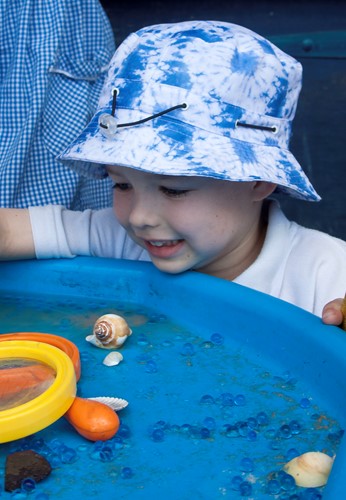
Science Implementation Statement
At Wrekin View, Science topics are taught within each year group in accordance with the National Curriculum.
- Topics are blocked to allow children to focus on developing their knowledge and skills, studying each topic in depth.
- Every year group will build upon the learning from prior year groups therefore developing depth of understanding and progression of skills.
- Teachers promote enjoyment and curiosity through engaging practical lessons.
- Children explore, question, predict, plan, carry out investigations and observations as well as conclude their findings.
- Children present their findings and learning using science specific language, observations and diagrams.
- In order to support children in their ability to ‘know more and remember more’ there are regular opportunities to review the learning taken place in previous topics as well as previous lessons.
- At the start of each topic children will review previous learning and will have the opportunity to share what they already know about a current topic.
- Effective CPD and standardisation opportunities are available to staff to ensure high levels of confidence and knowledge are maintained.
- To support teaching, teachers access a range of resources and planning from ‘Science Bug’. This is an online science programme which provides inspiring plans, activities and practical investigations. •
- Children will have many opportunities to use scientific equipment and constant visual access to all new scientific vocabulary relevant to that unit.
- Each topic block is a carefully planned learning journey which will enable children to answer a ‘Key Question’ at the end of block of work.
- Teachers use highly effective assessment for learning in each lesson to ensure misconceptions are highlighted and addressed.
- Effective modelling by teachers ensures that children are able to achieve their learning intention, with misconceptions addressed within it.
- Differentiation is facilitated by teachers, to ensure that each pupil can access the Science curriculum.
- Children are given clear success criteria in order to achieve the learning intention with differing elements of independence.
- Pupils are regularly given the opportunity for self or peer assessment, which will then be used to inform planning, preparation, differentiation and address misconceptions within that lesson, or for the next lesson.
- Children will be given the chance to learn about famous scientists through time and their achievements to see what impact Science can have in the real world.
- Teachers find opportunities to develop children’s understanding of their surroundings by accessing outdoor learning, educational visits and workshops with experts.
- Through enrichment days, such as our ‘WOW’ experiments day, ‘Science Week’, and ‘Wrekin View Science Fair’, we promote the profile of Science and allow time for the children to freely explore scientific topics.
The successful approach to the teaching of science at Wrekin View School will result in a fun, engaging, high quality science education, that provides pupils with the foundations for understanding the world that they can take with them once they complete their primary education.
Assessment at Wrekin View Primary School is teacher based and formed using formal and informal strategies. These included demonstrating what they have learnt when answering the key question at the end of the unit, quizzes, use of mind maps, verbal/written outcomes, reflection tasks or presentations. Prior knowledge is checked at the beginning of a unit to allow for misconceptions and gaps to be addressed more immediately. There is a clear progression of children’s work and teachers’ expectations.
Pupils at Wrekin View Primary School will:
- demonstrate a love of science work and an interest in further study and work in this field.
- retain knowledge that is pertinent to Science with a real-life context.
- be curious - able to question ideas and reflect on knowledge.
- work collaboratively and practically to investigate and experiment.
- be effective communicators showing confidence to use and explain scientific vocabulary.
- be able to explain the process they have taken and be able to reason scientifically.
- become increasingly independent in science, and complete pupil lead investigations.
- complete mind maps at the start of a unit to ensure any misconceptions of a topic are addressed.
- achieve age related expectations in Science at the end of their year. Some pupils will have progressed further and pupils with SEND and those with gaps in their understanding will receive appropriate support.
Science Impact Statement
The successful approach to the teaching of science at Wrekin View School will result in a fun, engaging, high quality science education, that provides pupils with the foundations for understanding the world that they can take with them once they complete their primary education.
Assessment at Wrekin View Primary School is teacher based and formed using formal and informal strategies. These included demonstrating what they have learnt when answering the key question at the end of the unit, quizzes, use of mind maps, verbal/written outcomes, reflection tasks or presentations. Prior knowledge is checked at the beginning of a unit to allow for misconceptions and gaps to be addressed more immediately. There is a clear progression of children’s work and teachers’ expectations.
Pupils at Wrekin View Primary School will:
- demonstrate a love of science work and an interest in further study and work in this field.
- retain knowledge that is pertinent to Science with a real-life context.
- be curious - able to question ideas and reflect on knowledge.
- work collaboratively and practically to investigate and experiment.
- be effective communicators showing confidence to use and explain scientific vocabulary.
- be able to explain the process they have taken and be able to reason scientifically.
- become increasingly independent in science, and complete pupil lead investigations.
- complete mind maps at the start of a unit to ensure any misconceptions of a topic are addressed.
- achieve age related expectations in Science at the end of their year. Some pupils will have progressed further and pupils with SEND and those with gaps in their understanding will receive appropriate support.
Computing Intent Statement
It is our intention to provide children with a variety of learning opportunities that enable them to find, explore, analyse, exchange and present information within an ever-changing technological world that they live within. In order to achieve this, we focus highly on developing the necessary skills children will need to ascertain so that they can use information in an appropriate and effective way so that they can further develop their curiosity while still understanding how to keep themselves safe. We also want children to know more, remember more and understand more in computing so that they leave Wrekin View with the relevant confidence, knowledge, and secure understanding of what is expected for an individual who is computer literate. We strongly believe that computing skills are essential in the technological world that we live within and, by having a varied range of learning opportunities, it will ensure that all children will achieve success and continually develop their curiosity so that they can become successful, confident, curious learners throughout their time at Wrekin View.
Our overall intention is to build and utilise a computing curriculum that develops children’s learning and results in the acquisition of knowledge in the three main computing strands of: Information Technology, Digital Literacy and Computer Science. Within these three strands, the children will be challenged on understanding the concepts of logic, algorithms, data representation, how we can analyse data, through regular practical experiences of testing, and writing computer programs that will support with problem solving and trouble shooting.
With the continually growth of internet usage, it is also our intention to ensure that our computing curriculum prepares pupils to live safely in an increasingly digital British society where pupils can fully utilise their knowledge and understanding of information technology so that they can store, retrieve, and send information safely.
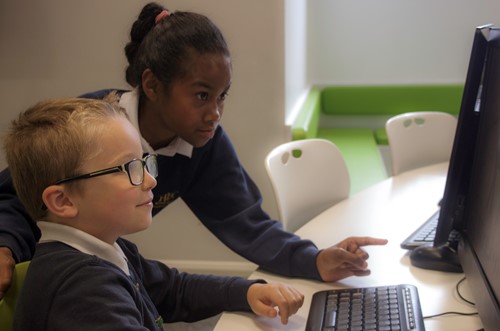
ICT Implementation Statement
The teaching and implementation of the computing curriculum at Wrekin View Primary School is centred around a tailored scheme of work that allows and caters for its pupils to meet the necessary coverage outlined within the National Curriculum. The overarching strands of digital literacy, information technology and computer science are embedded within the teaching and learning sequence that facilitates progression from early years up until they depart at the end of key stage 2.
The individuality and well-thought-out sequence of each teaching unit within the long-term planning provides teachers and pupils a platform that concentrates on the important skills and opportunities needed in preparation for the following year. This allows pupils the chances to develop a secure and confident understanding of what computing is and why it is important within their ever-changing world they live in. Within each unit, pupils will focus on one of the main strands as its focal point. However, the remaining strands will, at times, interchange throughout a unit to facilitate pupils with the required vocabulary, skills, and knowledge they require so that they can understand and meet their weekly learning outcomes.
To support our pupils with ascertaining, engaging, and developing their computing skills, a variety of well thought out resources are readily available through the scheme of work that we use; this supporting them in the present and the near future as they progress through their learning journey. While in computing lessons, the pupils will all have access to the hardware (computers, laptops, iPads, and programmable equipment) and the necessary software required so that they understand what the software or hardware is and how these digital systems work. Pupils are also provided with an opportunity of attending our computing club that runs after school. During our computing club, the pupils can demonstrate their skills learnt within lessons through collaboratively working on a range of projects, a favourite project being based within Minecraft.
Alongside the three main strands of computing, pupils will have a vast amount of opportunities to investigate and respond to key matters associated with: keeping safe online, cyberbullying, security, social media, and communication through digital applications. All these associated examples are embedded within our core values in Online safety and these critical messages and values are shared through lesson objectives, assemblies, online platforms, displays within the computer suite and special day events (safer internet day). As well as opportunities provided in school, external professionals will also spend time with children, further exploring the key issues associated with online safety.
To make sure that our computing curriculum offer is both progressive and supportive for the children, adults delivering each unit can review and look at what is to be delivered and will adapt any units when required to do so. Another tool of monitoring our computing curriculum is that we use evaluations. These evaluations are undertaken through professional dialogue, computing audit surveys/questionnaires, pupil voice and work produced by the children. With these evaluations, it supports with the direction of future planning and the areas of CPD that need to be explored.
ICT Impact Statement
Our aim is to ensure that children leave Wrekin View Primary as confident users of technology and that they can use it to further their learning so that they can maximise and achieve a wide variety of goals. These goals being both achievable and measurable in the learning environment in school and at home.
Throughout their time at Wrekin View, children will have developed a secure and comprehensive knowledge of the implications technology and digital systems can have and how this can affect them now, in the community and the wider world they live within. We believe this to be essential as technologies and trends are rapidly evolving in society.
Finally, children will be able to apply the British values of democracy, tolerance, mutual respect, rule of law and liberty when using digital systems.
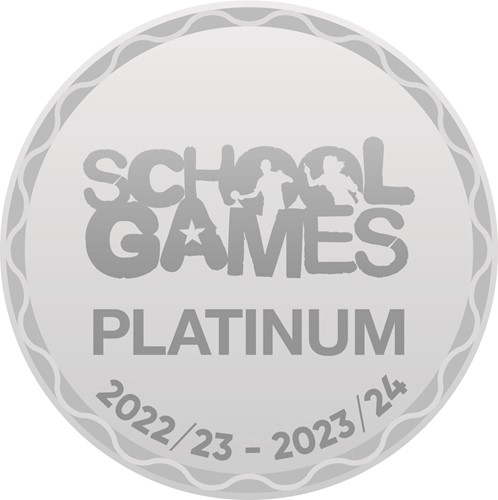

PE Intent Statement
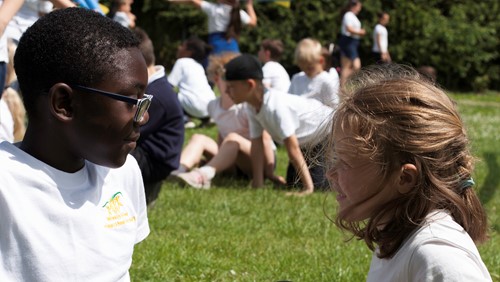
At Wrekin View, we strive to create a culture which aims to inspire an active generation to enjoy PE, encourage each other and achieve. We provide a safe and supportive environment for children to flourish in a range of different physical activities which is essential in supporting their physical, emotional, and social development.
At Wrekin View we offer a dynamic, varied and stimulating program of activity to ensure that all children progress physically through a fully inclusive PE curriculum. We encourage all children to develop their understanding of the way in which they can use their body and equipment safely yet imaginatively to achieve their personal goals. We aspire for children to adopt a positive mind-set and believe that anything can be achieved with determination and resilience.
The aim of Physical Education is to promote physical activity and healthy lifestyles. Children are taught to observe and produce the fundamentals of fair play, honest competition and good sporting behaviour leading to the embedding of life-long values such as co-operation, collaboration, and equity of play.
Our PE Curriculum, along with PSHE and science, teaches children about the importance of healthy living and learning about the need for good nutrition. At Wrekin View we aim for children to develop the necessary knowledge and skills which will have a positive impact on their future by becoming physically active citizens to benefit their long-term health and well-being.
PE Implementation Statement
- PE at Wrekin View Primary School provides challenging and enjoyable learning through a range of sporting activities including; invasion games, net & wall games, strike and field games, gymnastics, dance, swimming and outdoor & adventure.
- The long term plan sets out the PE units which are to be taught throughout the year and ensures that the requirements of the National Curriculum are fully met.
- Pupils participate in two high quality PE lessons each week, one taught by their class teacher and the other taught by a qualified sports coach.
- Children are encouraged to participate in the varied range of extra-curricular activities. Lunch time sports clubs are available each day and children can attend after school sport clubs four evenings per week.
- All children are invited to attend competitive sporting events within the local area. This is an inclusive approach which endeavours to encourage not only physical development but also mental well-being. These events also develop teamwork and leadership skills and are very much enjoyed by the children.
- Each year a small group of Year 6 children are invited to become Sports Leaders for the school. They develop into sporting role models for the younger children, assisting with lunch-time clubs, our annual Sports day and any other Sporting activities.
- Over the course of the academic year, Year 4, 5 and 6 each spend a 10 week block swimming.
PE Impact Statement
We help motivate children to participate in a variety of sports through quality teaching that is engaging and fun. From our lessons, our children learn to take responsibility for their own health and fitness, many of whom also enjoy the success of competitive sports. We equip our children with the necessary skills and a love for sport. They will hopefully grow up to live happy and healthy lives utilising the skills and knowledge acquired through PE.
Art Intent Statement
At Wrekin View, we believe that Art and Design is a vital part of a child’s education. Our Art and Design curriculum develops creativity, sets challenges, engages children, and equips them with the knowledge and skills to experiment, invent and create their own works of art, craft and design. Art contributes to children’s personal development in creativity, independence, judgement and self-reflection. The curriculum we provide is rich in skills and knowledge. The children will develop their understanding of the visual language of art with effective teaching and carefully planned sequences of lessons and experiences. Understanding the visual elements of art and design such as tone, texture, colour, and pattern will be developed by providing an accessible, engaging curriculum will enable the children to achieve their full potential. Through our curriculum, we aim to provide children with an experience that is exciting and to ensure that they combine practical skills with creative thinking, developing highly valuable and transferrable skills for future careers and life. As the children progress, they will be able to think critically and develop a more rigorous understanding of art and design. They should also know how art and design both reflect and shape our history, and contribute to the culture, creativity and wealth of our nation.
Aims:
The National Curriculum for art and design aims to ensure that all pupils:
- Develop proficiency in drawing, painting, understanding colour and shade and sculpture.
- Develop their understanding of the visual language of art with effective teaching and carefully thought out sequences of lessons and experiences.
- Develop their appreciation of the diverse cultural heritage within the school and local community through studying a diverse range of male and female artists and designers throughout history.
- Recognise where improvements and developments can be made, wherever possible making these to evolve their work.

Art Implementation Statement
The teaching and implementation of the Art and Design Curriculum at Wrekin View Primary School is based on the National Curriculum and it is focused on developing skills as well as creativity and imagination through a range of well planned activities. To ensure high standards of teaching and learning in art and design, we implement a curriculum that is progressive throughout the whole school. Every year group will cover the main 3 strands of Art and Design curriculum, drawing, painting and sculpture, building on prior knowledge and skills as children move through school. At Wrekin View School, children are taught Art and Design in every year group, once per week during either the first or second half of each term.
Each child has a sketchbook where they can practice new skills, experiment, plan and create their own pieces of art. This sketchbook will travel with children throughout their whole primary journey, allowing them to take ownership and see their own progress in Art. At the end of each unit children have the opportunity to show and evaluate their own art work. Our children are very proud to display their art work on the classroom and whole school displays.
At Wrekin View, children are introduced to various current and historical international artists, craft makers and designers to learn from other cultures and respect diversity.
At our school the Art curriculum is supported through the availability of a wide range of quality resources, which are used to support children’s confidence in use of different media. Art club provides further opportunity outside the classroom for children to explore their unique creativity. School staff are equally supported to develop their own expertise in teaching the subject through staff meetings and support from the subject lead.
Art Impact Statement
The Art Curriculum at Wrekin View Primary is high quality and is planned to demonstrate progression. Art and Design monitoring takes many forms due to the nature of this curriculum area. We measure the impact of our curriculum through the exploration and creation of a final piece of art for each unit recorded in sketchbooks, pupil voice, self and peer evaluation and the ability to apply the learnt skills in other areas of the curriculum. This allows pupils and teachers to reflect on the standards that have been achieved against the planned outcomes.
Art and Design at Wrekin View Primary aims to enrich learning and enable children to communicate their thoughts, ideas and observations in a practical and expressive way.
Design & Technology Intent Statement
Design and Technology at Wrekin View aims to provide children with a rich, engaging curriculum that is relevant in our rapidly changing world. We want to encourage our children to become problem solvers who can work creatively on a shared project. We believe that high-quality Design and Technology lessons will inspire children to think independently, innovatively and develop creative, procedural and technical understanding. Our Design and Technology curriculum provides children with opportunities to research, represent their ideas, explore and investigate, develop their ideas, make a product and evaluate their work. The children are also given opportunities to reflect upon and evaluate past and present Design Technology, its uses and its effectiveness, and are encouraged to become innovators, risk-takers, resilient and inquisitive designers. Through the Design and Technology curriculum, children will be inspired by engineers, designers, chefs and architects, to enable them to create a range of structures, mechanisms, textiles, electrical systems and food products with a real life purpose.
Design & Technology Implementation Statement
Design and Technology at Wrekin View follows a clear and comprehensive scheme of work in line with the EYFS, KS1 and KS2 National Curriculum. DT is taught half termly, and ensures that children follow a journey through the school, within the five key areas of DT: Structures and Construction, Textiles, Mechanics, Electrical and Cooking and Nutrition.
Through a variety of creative and practical activities, we teach the knowledge, understanding and skills needed to engage pupils in designing and making. When designing and making, the children are taught to:
Design:
- Use research and develop design criteria to inform the design of innovative, functional, appealing products that are fit for purpose, aimed at particular individuals or groups;
- Generate, develop, model and communicate their ideas through discussion, annotated sketches, cross-sectional diagrams, prototypes, pattern pieces and computer-aided design.
Make:
- Select from and use a wider range of tools and equipment to perform practical tasks (for example, cutting, shaping, joining and finishing) accurately;
- Select from and use a wider range of materials and components, including construction materials, textiles and ingredients, according to their functional properties and aesthetic qualities. Evaluate:
Technical knowledge:
- Apply their understanding of how to strengthen, stiffen and reinforce more complex structures;
- Understand and use mechanical systems in their products;
- Understand and use electrical systems in their products;
- Understand and apply an understanding of healthy eating, food groups, farming and sustainability.
Evaluate:
- Investigate and analyse a range of existing products (market research),
- Evaluate their ideas and products against their own design criteria and consider the views of others to improve their work;
- Understand how key events and key individuals in design and technology have helped shape the world.
Key skills and key knowledge for design and technology have been mapped across the school to ensure progression between year groups. The context for the children’s work in design and technology is also well considered and children learn about real life structures and the purpose of specific and local examples, as well as developing their skills throughout the programme of study.
Design & Technology Impact Statement
Design and Technology at Wrekin View follows a clear and comprehensive scheme of work in line with the EYFS, KS1 and KS2 National Curriculum. DT is taught half termly, and ensures that children follow a journey through the school, within the five key areas of DT: Structures and Construction, Textiles, Mechanics, Electrical and Cooking and Nutrition.
Through a variety of creative and practical activities, we teach the knowledge, understanding and skills needed to engage pupils in designing and making. When designing and making, the children are taught to:
Design:
Use research and develop design criteria to inform the design of innovative, functional, appealing products that are fit for purpose, aimed at particular individuals or groups;
Generate, develop, model and communicate their ideas through discussion, annotated sketches, cross-sectional diagrams, prototypes, pattern pieces and computer-aided design.
Make:
Select from and use a wider range of tools and equipment to perform practical tasks (for example, cutting, shaping, joining and finishing) accurately;
Select from and use a wider range of materials and components, including construction materials, textiles and ingredients, according to their functional properties and aesthetic qualities. Evaluate:
Technical knowledge:
Apply their understanding of how to strengthen, stiffen and reinforce more complex structures;
Understand and use mechanical systems in their products;
Understand and use electrical systems in their products;
Understand and apply an understanding of healthy eating, food groups, farming and sustainability.
Evaluate:
Investigate and analyse a range of existing products (market research),
Evaluate their ideas and products against their own design criteria and consider the views of others to improve their work;
Understand how key events and key individuals in design and technology have helped shape the world.
Key skills and key knowledge for design and technology have been mapped across the school to ensure progression between year groups. The context for the children’s work in design and technology is also well considered and children learn about real life structures and the purpose of specific and local examples, as well as developing their skills throughout the programme of study.

Geography Intent Statement
Geography at Wrekin View is designed to broaden the knowledge and enlighten the curiosity within children of the ever-changing world in which we live.
The curriculum will equip our children with knowledge about diverse places, people, natural and human environments, together with a deep understanding of the Earth’s key physical and human processes.
We aim to widen the children’s horizons of the world, beginning with them and their immediate locality before branching out and learning about the national and international world.
Our exciting Geography curriculum is designed to ensure that our children have an appreciation of the world and their place in it, whilst deepening their understanding of how their own actions will have an impact on other people and the world around them.
Geography Implementation Statement
At Wrekin View, we have a progressive and curiosity-filled curriculum that is built upon national curriculum aims and is designed to build upon prior knowledge and skills year on year. Our geography curriculum is taught through our termly topics, which we aim to ensure children are able to apply prior knowledge and skills to current learning.
The geography curriculum will be taught with an aim to be challenging, inspiring, creative, nurturing and encourage active learning to ensure all children are successful. The learner will revisit geographical skills and knowledge in order to embed and deepen understanding. The lessons are carefully planned, with clear differentiation, to ensure that all children are well supported in their learning journey and there are opportunities for deeper learning.
To supplement learning, trips and visiting experts are used to enhance the learning experiences for the children. Starting with the Early Years Foundation Stage (EYFS) the children will be introduced to their school environment and as they progress through the school, they will gain a broadened understanding of the wider world.
To compliment our studies on the local environment, we have set up an Eco Warrior committee full of strong communicators who are determined to make changes within our school. The team are responsible for: making our school litter free, sharing the benefits of buying locally and growing our own produce and that we are reducing our energy consumption, e.g., turning off light and switches.
Geography Impact Statement
Our Geography Curriculum is planned to offer our pupils high quality and well planned out lessons which clearly show progression to ensure each child is successful. Through Geographical Questioning during lessons allows pupils to gain coherent knowledge and understanding of their local area and the world around them. Also, children are exposed to a wide range of Geographical Vocabulary to broaden their understanding and knowledge further. By offering a wide range of terminology we are able to apply this new knowledge to help assist in answering our end of term “key question”; as teachers this helps us to identify areas in which we need to encourage deeper learning. Continuity and progression in the curriculum is built around essential knowledge, understanding and key skills within Geography.
Through our curriculum, pupils learn to think critically and ask perceptive questions. In order to ensure our aims have been met, we scrutinise topics through:
- Interviewing the pupils about their learning (pupil voice).
- Moderation where pupil’s books are scrutinised and there is the opportunity for a dialogue between teachers to understand their class’s work.
- Sharing good practice in staff meetings.
- Marking of written work in books against the schools marking policy.
- Teachers to input data into learning passports.
History Intent Statement
History at Wrekin View has been carefully planned to expand and stimulate the curiosity in our children of wanting to find out how the past has shaped the world they live in and develop their knowledge in a wide variety of topics.
We want our children to know what a historian is and the children will be encouraged to use a variety of resources to form their own conclusions and understanding of the past and how key historical events have influenced and affected the present. The children will be confident to communicate their own thoughts and opinions, ask perceptive questions, think critically, and develop their own judgements.
We aim to broaden the children’s interest in World History and appreciate the important role it has played. They will begin with studying their own locality, which is rich in its own history, before moving onto wider British and World history.
At Wrekin View we are committed to ensuring our children have a love and appreciation of history, whilst ensuring they have a deep understanding of how history can influence their decisions about personal choices, attitudes and values.
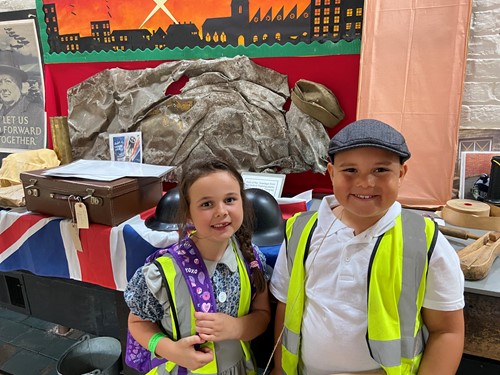
History Implementation Statement
As a school, we maintain strong links to the National Curriculum guidelines to ensure all aspects, knowledge and skills of History are being taught across all year groups. We use progression grids to ensure there is clear skills, knowledge and vocabulary progression throughout school. Our curriculum is taught on a half termly basis where the children are taught a history topic across a half term, with the children studying three history topics per year. We have chosen our topics carefully to be both in line with the National Curriculum as well as being as interesting as possible in order to create a bespoke History curriculum for our school.
Where appropriate we use historical artefacts, visitors, workshops and visits to excite and intrigue our children to find out more about events and people from the past and to immerse them fully in the historical topic they are learning about. We aim to give our children as much understanding as possible about what life was like during a particular period in history by having practical and hands on lessons where possible.
Children study a variety of topics ranging from Stone Age to The Roman Empire, as well as doing a variety of topics of both their local area over time and important people from their locality. We also look at some whole school themes at important parts of the year and complete whole school activities on these include Remembrance Sunday and King Charles' III Coronation.
Subject co-ordinators are given regular time to ensure resources are kept up to date, to monitor the subject teaching and books across the school and to provide subject feedback to SLT as appropriate. Time is also given to conduct student voice feedback where the children will be given the opportunity to speak freely about the teaching of history within their classroom environment to allow us as a school to create as bespoke a curriculum as is possible for our children. We also subscribe to a number of online subscriptions including The National College and History Association to allow all staff access to CPD on History to allow them to feel as confident as possible in delivering each Historical topic.
Foundation subjects are assessed at the end of each year stating whether children are working towards, at or exceeding age-related expectations.
History Impact Statement
Through the high quality first teaching of History taking place our children will be enthusiastic history learners, evidencing this in a range of ways. Through pupil voice, children will be able to talk confidently about the skills and knowledge they have acquired in each of their history topics. By the end of KS2, the children will be able to discuss and compare the different history topics that they have studied across the school. Children will be engaged in History lessons and always want to find out more.
Work in books will show that a range of topics are being covered, cross curricular links are made where possible and differentiated work set as appropriate.
The school environment will celebrate history through a whole school display celebrating the children’s work. We will also celebrate key historical events as a whole school throughout the year such as Remembrance Day. Through the high-quality learning, children will learn lessons from history to influence the decisions they make in their lives in the future.


Music Intent Statement
The music curriculum at Wrekin View is designed to provide children with exciting and engaging musical opportunities. The curriculum aims to encourage a love of music whilst developing a curiosity for the subject, through experiences and opportunities to sing, compose and perform.
We give children the chance to experience and explore a variety of instruments and genres throughout their time at Wrekin View, which provide them with the skills and knowledge to become successful musicians.
We are dedicated to ensuring that children have a deep understanding of the value and importance of music around the world, whilst being aspirational to all pupils. This will spark their passion for music as they continue through life after Wrekin View.
Music Implementation Statement
The teaching and implementation of music at Wrekin view Primary School is based on the Model Music Curriculum which has been customised and attuned to suit the children. The long term planning focuses on 4 areas of music, which are entwined together to help the children become proficient, skilled musicians. The medium term plan covers performing, composing, listening and singing ensuring the children are given an extensive breadth of the subject. The children spend Autumn and Spring terms learning musicianship skills to refine their individual talents, leading to a composing module in the Summer term. Throughout the school, our aspirational curriculum is taught weekly for 30 minutes. Fortunately at Wrekin View, there are many members of staff who are come from a musical background and have given other teachers support. As well as this, the music lead has attended a multitude of lessons across the school to give advice.
Aims:
- Children can play instruments when they leave, starting with recorder, progressing to TooTs (durable, plastic flutes), and introduced to stringed instruments like ukuleles for accompaniment.
- Children have an enjoyment and love of singing.
- Children are provided with opportunities to perform in and out of school
- Children are given opportunities to watch and listen to live and recorded to performances
- Children have an introduction to composing
How we have successful learners:
Children learn the skills of musicianship in KS1 with an introduction into recorders at the end of year 2. They become more confident on recorder in year 3 and move onto to TooTs in year 4, 5 and 6. Ukulele is also introduced in year 5 to develop their understanding of chords and triads, and as accompaniment to their TooTs, and singing in performing and composing.
Children attend a weekly singing assembly, learning a mixture of pop songs they enjoy and songs from the model music curriculum focusing on interdimensions of music and how singing can make us feel happy. There is a weekly choir club attended by up to 30 children from year 2 to 6. During this time the children learn songs for an annual large concert ‘Young Voices,’ local competitions, and songs they love. We emphasise that singing is an enjoyable and fun activity, helping children understand that singing is meaningful for our mental health and wellbeing.
The lessons end with a listening task, listening to a variety of different music including classical from Baroque era to Romantic, pop music from funk to rock and roll, and musical traditions from different countries. Children are given the opportunity to listen to live and professional recordings, as well as listening to live performances on trips to watch the local pantomime, musicals with nearby secondary schools, and professional performances. Listening opportunities are given around school as children enter and leave assembly. These are often linked to current events.
For their final term, every year group is given the chance to improvise and compose using the skills and knowledge they have gained in the Autumn and Spring terms on the varying instruments, and using the musicianship they have learnt. Children are taught the skills needed to compose and are given many ways throughout their time at Wrekin View Primary School to produce abstract compositions to more tonal pieces.
Additional resources –
We are lucky to have many instruments in our building to use for our music lessons, including drums, hand held percussion, keyboards, drum machines, recorders, Toots and ukuleles.
Music Impact Statement
The impact of this Music curriculum will lead to confident performers, eager singers, imaginative composers and respectful listeners who can play a musical instrument. The integral nature of music and the learner creates a variety of skills and knowledge from which a child can access essential abilities such as: happiness, success, self-confidence, and resilience. Music will also build upon their knowledge of other cultures and musical history. The children will be given the opportunity to perform at the end of each term, sharing their new performance or composition skills with peers which will be recorded on Tapestry through videos, photos and pupil voice. Those children with a particular interest or aptitude in music will be given the opportunity to extend their education in a variety of ways, for example attending Young Voices concerts, performing in assembly, participating in singing assembly, and the school talent show giving them memories to treasure for a lifetime. Our Music curriculum will foster a love and increasing enthusiasm and appreciation for the subject amongst our children, and a potential for life-long musical study.
Religious Education – Statement of Implementation
At Wrekin View, we use the Discovery R.E. for Religious Education as a basis for our curriculum, a comprehensive, enquiry based scheme.
We have considered the requirements and guidelines presented in the scheme and the specific regions within our school and therefore have selected the following religions to study:
- Christianity (all year groups)
- Islam (Year 2 and 6)
- Judaism (Year 1)
- Hinduism (Year 3)
- Buddhism (Year 4)
- Sikhism (Year 5)
- In the Early Years Foundation Stage the learning outcomes are referenced to Christianity and as appropriate to a range of other beliefs and cultures
The 2013 Ofsted report on RE, “Religious Education: realising the potential”, suggests
“Using the approach of a philosophical enquiry can deepen and extend pupils’ investigation into religion”.
“In the most effective RE teaching, enquiry is based at the heart of the learning”.
Discovery RE promotes this enquiry approach because it had become evident from teachers and children’s work across hundreds of schools in England, that this motivates in-depth exploration of RE content/subject knowledge in order to answer the big enquiry question. Knowledge is no longer an end in itself, it is now important as the means with which to explore potential answers to the big questions posed in each Discovery RE enquiry.
The four steps are:
- Step 1: Engagement: the children’s own human experience is explored to act as bridge from their world (which may or may not include religion) into the world of the religion being studied.
- Step 2: Investigation: over approximately 3 lessons the teacher will guide the children to explore and investigate appropriate subject knowledge relevant to that question of enquiry.
- Step 3: Evaluation: An assessment activity enables each child to show their thinking and the depth of critical evaluation.
- Step 4: Expression: This refers the children back to the starting point of their own experience and allows them to reflect on whether their findings have influenced their own thinking.
There are no presumptions made as to the religious backgrounds and beliefs and values of the children and the staff. We value the religious background of all members of the school community and hope that this will encourage individuals to share their own experiences with others freely. All religions and their communities are treated with respect and sensitivity, and we value the links, which are, and can be made between home, school, and a faith community. We are extremely lucky that members of the local church, All Saints Parish Church, regularly visit our school to carry out assemblies and encourage our children to participate in various Christian events throughout the year.
We acknowledge that each religion studied can contribute to the education of all our pupils. We promote teaching in Religious Education that stresses open enquiry and first-hand experiences such as visits to places of worship, and visitors representing different religions.
Teachers are provided with long and medium term overviews and termly planning along with links to resources from the Discovery R.E. scheme. There are also opportunities to co-teach with the Subject Leaders.
PSHE Intent Statement
Wrekin View’s PSHE and Citizenship Scheme of Work aims to equip children with essential skills for success in life in our ever changing world. It aims to develop the whole child through carefully planned and resourced lessons that develop the knowledge, skills and attributes children need to protect and enhance their wellbeing. Through these lessons, children will learn how to stay happy, safe and healthy, build and maintain successful relationships and become curious, active citizens, responsibly participating and able to communicate in society around them. Successful PSHE curriculum coverage is a vital tool in preparing children for life in society, now and in the future. Our PSHE and Citizenship units aim to cover a wide range of the social and emotional aspects of learning, enabling children to develop their identity and self-esteem as active, confident citizens. The themes and topics support social, moral, spiritual and cultural development and provide children with protective teaching on essential safeguarding issues, developing the knowledge of when and how children can ask for help.
PSHE Implementation Statement
At Wrekin View, we recognise that all children are unique individuals and therefore we aim to encourage mutual respect, responsibility and foster self-esteem in a happy and caring atmosphere. The teaching and learning of PSHE supports and upholds our vision of Happy, Curious, Successful Communicators. We follow the statutory guidance and PSHE framework. To deliver our curriculum, we use the JIGSAW scheme of work as a basis for our teaching and learning. Where possible we utilise first-hand experience and sharing good practice, and it is every staff members responsibility to do this by being a role model and having high expectations of pupils.
Our curriculum is split into 6 core themes which are taught across the school at the same time. The key themes. are: Being Me In My World, Celebrating Differences, Dreams and Goals, Healthy Me, Changing Me and Relationships.
In Nursery PSHE is recorded through observations on Tapestry. Reception and Y1 record through floor books. In KS2 children are encouraged to be reflective learners. Their PSHE books will record reflections on what they have taken away from each lesson, whether that is new facts or insights about themselves and their development.
At Wrekin View we believe that PSHE plays a vital part of primary education and needs to be taught at least weekly; although there will also be opportunities to make cross curricular links and these opportunities should not be missed. This enables staff to ensure full coverage of the PSHE scheme of work. There are always occasions where staff may feel it necessary to teach PSHE as a result of an issue which has arisen in their own class.
PSHE is integral to the development of children’s values in order for them to become a positive citizens in a forever changing community.
PSHE Impact Statement
Our teaching of PSHE will lead to children meeting the standards of attainments across the school and those that are expected of our children nationally. Children will each make progress relative to their own individual starting point. The implementation and impact of the PSHE curriculum is assessed across school to ensure that children are provided with the best possible chance at succeeding. We strive to ensure that by the end of their time with us at Wrekin View each child will:
be able to approach a range of real life situations and apply their skills and attributes to help navigate themselves through modern life
- be on their way to becoming healthy, open minded, respectful, socially and morally responsible, active members of society
- appreciate difference and diversity
- recognise and apply the British Values of Democracy, Tolerance, Mutual respect, Rule of law and Liberty
- be able to understand and manage their emotions
- be able to look after their mental health and well-being
- be able to develop positive, healthy relationship with their peers both now and in the future.
- understand the physical aspects involved in RSE at an age appropriate level
- have respect for themselves and others.
- Understand who they can rely on and ask for support
- Demonstrate self-confidence and self-esteem.
Assessment within discrete PSHE lessons, will ensure that pupils are building on their skills and knowledge over time. It will demonstrate progression and also uniformity between parallel classes. Predetermined learning objectives allow teachers to be mindful of the assessment elements within lessons and can help them pitch and plan subsequent lessons. Activities are included within lesson to give the children the opportunity to self-assess and these allow children the opportunity to identify areas for self-improvement.
An individual’s progress will be recognised through recognition within the classroom.
MFL Intent Statement
German at Wrekin View offers a carefully planned, engaging sequence of lessons, ensuring progressive coverage of the skills required by the national curriculum whilst nurturing children’s curiosity and providing opportunities to deepen their knowledge and understanding of the world in which they live. It enables children to celebrate and gain a deeper awareness of the cultural richness of our school through which they develop respect in themselves and towards others. The learning of a language supports them to develop the communication skills so vital to future success in this ever-changing world. Children learn to express their ideas and thoughts in German and have opportunities to interact and communicate with others; giving all children the opportunity to experience themselves as successful learners of a foreign language.
We hope to inspire pupils to develop a love of languages and to expand their horizons to other countries, cultures and people. We aim to help children grow into curious, confident and reflective language learners and to provide them with a foundation that will equip them for further language studies and a life-long interest. German has been chosen as our language as this is the main language of our secondary schools.
MFL Implementation Statement
Here at Wrekin View we follow the National Curriculum with a minimum of 30 minutes teaching time per week in KS2. Children develop their love of language learning and develop skills throughout their time in school.
- German is taught in a variety of ways and our focus is very much on active engagement, curiosity and successful progression.
- Games – in order to develop vocabulary through repetition, reading, writing, speaking and listening skills.
- Role-play – these should relate to the situations the children may find themselves in the future.
- Action songs and rhymes – to develop phonetic skills, memory skills and to further vocabulary. Reading and writing quality materials.
We build children’s confidence through praise for any contribution they make in the foreign language, however tentative.
Lessons and resources help children to build on prior knowledge alongside the introduction of new skills. Structured lessons provide context and an insight into the culture of German-speaking countries.
We have chosen to use the Primary Languages Network scheme of work which provides a range of interactive lessons and resources so that those who are not confident German speakers are able to confidently deliver a quality inclusive curriculum. Children will take part in a German Christmas event and a German Summer picnic. Additional materials and input will be provided by the Subject Lead who is a fluent German speaker and has many years of experience as a Subject Lead of MFL in a local secondary school. The Subject Lead will also provide ongoing training and team teach opportunities throughout the school year.
MFL Impact Statement
Children will know more and remember more German and will have greater understanding of the world around them and its cultural diversity and richness. They will be confident to speak and write short, meaningful sentences and phrases in German. We want children to know that language has a structure and that the structure differs from one language to another. We want to ensure that German is loved by teachers and pupils across school, therefore encouraging them to embark on further language studies and embracing German in their secondary schools and beyond in the wider world. Children will show an awareness of cultural differences in other countries. Impact will be measured by teacher/pupil feedback sessions, floor book scrutiny and lesson observations.
EYFS Intent Statement
At Wrekin View Primary School & Nursery, we are committed to providing a high quality early years’ education, which gives children a secure and confident start to their school life and nurtures a lifelong love of learning in a rapidly changing world. We foster a child’s natural curiosity and recognize the power of play as vital to our children’s wellbeing, learning and development. A robust transition process ensures that our children settle quickly and happily into life at Wrekin View and are well prepared for the next stage of their learning. We recognise that every child is an exceptional individual with varied prior learning experiences and starting points. We use the knowledge we acquire to create a rich holistic curriculum that provides first hand learning experiences and builds in the cultural capital that our children need so that they can develop the knowledge, skills and understanding necessary for success.
EYFS Implementation Statement
Our curriculum is designed to meet the needs of our children, it is progressive from our youngest learners to our oldest and is carefully sequenced from the warm welcome on the door, to consistent routines and exciting learning invitations. It takes account of Birth to 5 Matters, Development Matters and our own research.
Our curriculum is intrinsically linked to our whole school vision of Happy, Successful, Curious Communicators, with a rich and holistic bespoke offer to meet the needs of our children. It takes the account of our local context as well as providing the skills and knowledge necessary to prepare children for the next steps in their educational journey.
The curriculum is planned with regular opportunities to revisit prior learning to ensure that it is embedded.
Staff know the children well; they know what motivates them and what excites them and what their next steps are. We achieve this knowledge through daily early morning professional dialogue meetings in each year group adult led activities, formal and incidental observations carried out during child led and adult led focused activities.
Although we follow our meticulously planned curriculum, we also take account of our children’s interests and stage of development and reflect this in our planning.
Staff have an ever-increasing knowledge of child development backed up through daily discussions and research.
Staff have recently started using elements of the Curiosity Approach and ‘Teachable Moments’ to ensure that next steps are addressed in the moment when they are identified.
We ensure that we embed a strong culture of CPD to ensure that staff are skilled and up to date on the latest educational research e.g. staff have recently attended training on the revised EYFS framework, Curiosity Approach and Tapestry.
Sensitive care practices are evident throughout EYFS to ensure that we meet the needs of all children within our care.
We offer:
- Wrekin Giants group for our 2-3 year olds runs each morning and a blended daycareand sessional care group in the afternoon. Staffed by 1 manager, 1 deputy manager and 1 Level 2 LSP.
- A 48 place Nursery taking children from 3-4 years am or pm. Staffed by 1 full time teacher, 1 full time Level 3 LSP and 1 part time Level 2 LSP.
- 60 place Reception unit compromising of 2 classes of 30. Staffed by 1 full time and 2 parti time teachers and 2 full time LSP’s.
- Most of our children enter our Reception Classes from our Nursery
EYFS Impact Statement
Our children enter EYFS with low starting points and a growing number are from disadvantaged backgrounds. Therefore we have high expectations to ensure that all children make strong progress across all areas of learning so that they are prepared for the next stage of schooling.
Our strong transition process into WG, N and YR ensures that all children settle quickly and happily into life at Wrekin View. We recognise that happy children are learning.
We strive to ensure that children meet the Early Learning Goals at then end of Reception and aim to be at least in line with national expectations. We carry out in house and external moderation to ensure that our judgements are accurate. All moderation has been judged as accurate.
Staff hold daily meetings within EYFS discussing the progress of individual children and ensuring that any concerns are identified and action is taken. This enables the whole year group team to know the children really well.
Our strong transition process into WG, N and YR ensures that all children settle quickly and happily into life at Wrekin View. We recognise that happy children are learning.
We strive to ensure that children meet the Early Learning Goals at then end of Reception and aim to be in line with national expectations. We carry out in house and external moderation to ensure that our judgements are accurate. All moderation has been judged as accurate.
The impact of our curriculum is also measured by how effectively it helps our children develop into well rounded individuals who embody our school values and carry with them the knowledge, skills and attitudes which will make them lifelong learners and valuable future citizens.
We carefully track the progress of all children against our curriculum expectations and put in place timely interventions to close gaps e.g. NELI, RWI 1-1, Maths. The impact of identifying these target children early is that with support children can reach GLD.
We utilise latest research around learning and development to good effect e.g. balanceability program has achieved an 80% success rate of children who can ride a pedal bike at the end of YR.
We believe our high standards are due to the enriched play based exploration delivered through the Curiosity Approach alongside the rigour of assessment and high quality adult led sessions.
Educational Visits Intent Statement
Wrekin View aims to offer children a broad, rich, and engaging curriculum that promotes happiness, success, curiosity, and communication to prepare them for adult life in an ever-changing world. We recognise the value an importance of learning outside the classroom and encourage educational visits that enrich the curriculum and enhance the learning and development of our pupils.
We are committed to the broadest educational offering, which includes a successful and relevant enrichment programme that draws upon a wide range of adult skills offered through school trips, visitors, and themed enrichment days.
Our curriculum makes a good use of local and other areas, offering a range of enriching experiences both locally and nationally, ensuring that the children are immersed in understanding more about the world.
The school also takes the health and safety of our pupils and staff very seriously, taking all the necessary steps to ensure the health and safety of pupils and staff is paramount. Our safeguarding procedures are strong and effective, with staff members and pupils having a clear understanding of their responsibilities while out on educational visits and school trips.
